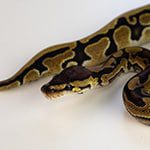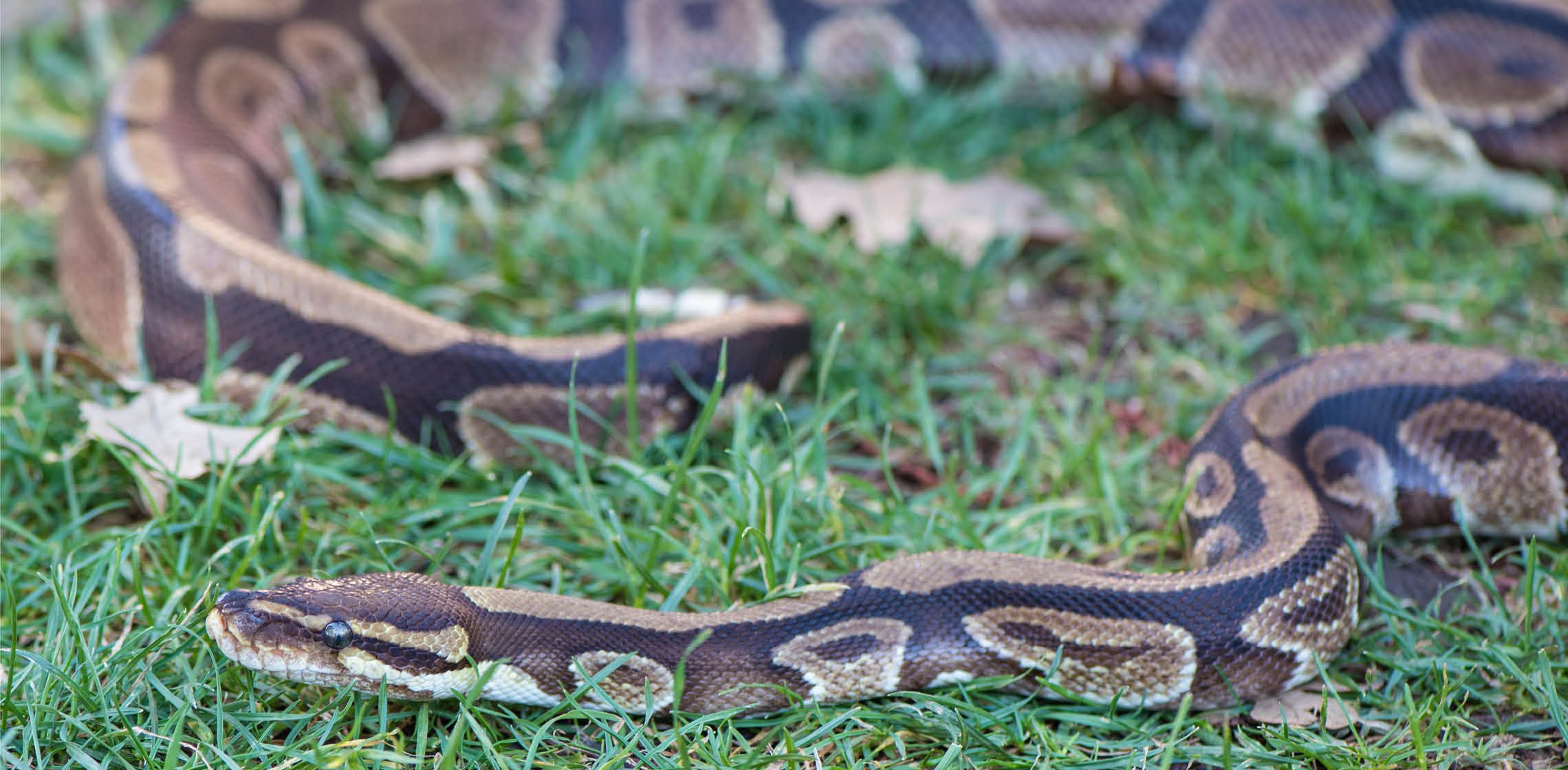
Ball Python
Common Name: Ball Python
Scientific Name: Python regius
Type: Non-venomous constrictor
Diet: Carnivore
Average Life Span: 20 to 30 years
Size: 3 – 5 feet
Weight: Up to 20 pounds

About Ball Pythons
This is the smallest of the African pythons and is popular in the pet trade, largely due to its small size and typically docile temperament. No subspecies are currently recognized. The name “ball python” refers to the animal’s tendency to curl into a ball when stressed or frightened. A common belief is that the name “royal python” (from the Latin regius) comes from the legend that rulers in Africa, especially Cleopatra, would wear the python as jewelry.
Size and Behaviour
Maximum adult length of this species is 182 cm (6.0 ft). Females tend to be slightly bigger than males, maturing around 122–137 cm (4.0–4.5 ft). Males typically grow to around 90–107 cm (3.0–3.5 ft). Their build is stocky, while the head is relatively small. The color pattern is typically black or dark brown with light brown or gold sides and dorsal blotches. The belly is a white or cream that may include scattered black markings.
This terrestrial species is known for its defense strategy that involves coiling into a tight ball when threatened, with its head and neck tucked away in the middle. In this state, it can literally be rolled around. Favored retreats include mammal burrows and other underground hiding places, where they also aestivate. In captivity, they are considered good pets, with their relatively small size and placid nature making them easy to handle.
Diet & Nutrition
In the wild, their diet consists mostly of small mammals, such as African soft-furred rats, shrews, gerbils, and striped mice and birds. Younger pythons, under 70 cm total length, and males prey almost exclusively on small birds (nestlings and immature young) whilst pythons greater than 70 cm total length, and females prey almost exclusively on small mammals. In captivity most ball pythons will accept common rats and mice, and some will eat chicks.
